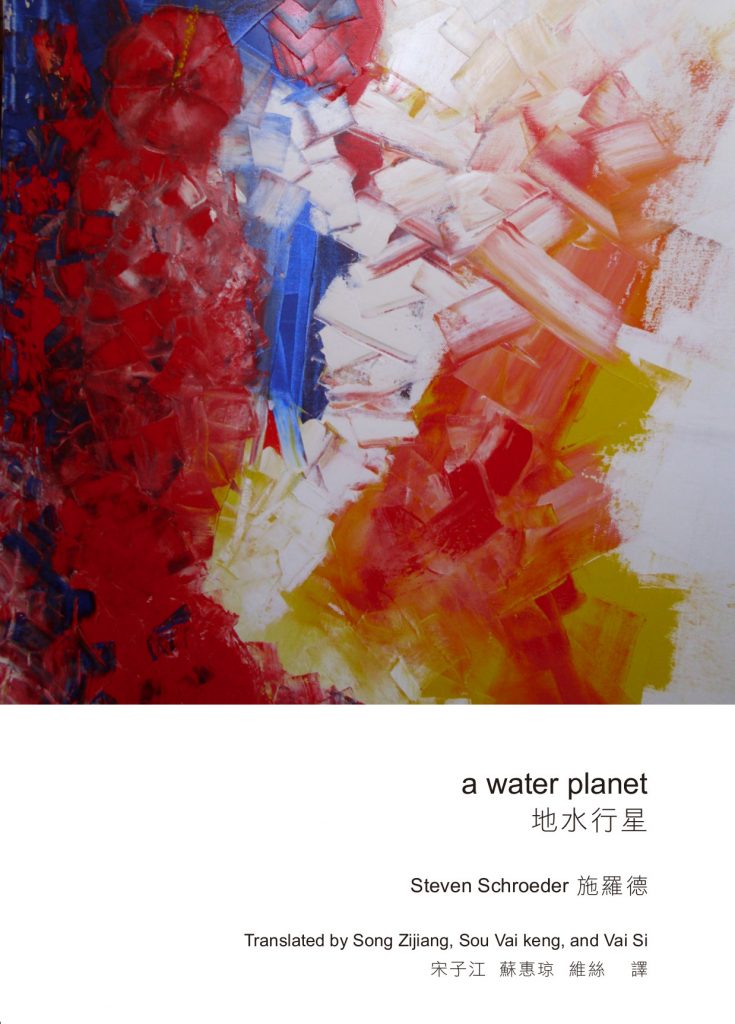I am a poet and visual artist who spent many years moonlighting as a philosophy professor. I think of my work as an intersection of chance with design — a collaboration with the media, painting with light while celebrating the way(s) pigment takes to surface, not showing or telling so much as opening a space for a play of possibility.
am interested in the way light breaks on edge, the way pigment takes to surface, the way words tumble out onto the page, the way the eye of the ear sees them.
I find common ground with John Cage when he says “I have nothing to say and I am saying it and that is poetry” and (in the same piece, his “Lecture on Nothing”) when he says “Kansas is like nothing on earth.” Kansas, southeastern Colorado, the northeastern corner of New Mexico, the panhandle of Oklahoma, and (especially) the panhandle of Texas – that is where I grew up, and it shaped my eyes like nothing on earth.
I find common ground with Helen Frankenthaler when she embraces chance and lets paint flow on raw canvas to create forms that surprise and invite us to see worlds we would never have seen alone. This leads me to embrace lyric poetry as a form of abstraction (in the way that computer scientists use the term), a simplification (and an interface) that allows us to manipulate complexities below the surface without getting bogged down in them. And it leads me to agree with Georgia O’Keeffe when she says all painting is abstract.
I often find myself spending as much time on what is not there as on what is. This usually means focusing on a single image and letting the whole composition spring up around it — not a narrative but an all at once that evokes a here and now that is, here, now, neither. A likely story is likely to grow out of this when readers and viewers encounter it, but I hope my art always invites more than it contains.
Links: stevenschroeder.org
Flying Islands Pocket Poet Publications
a water planet
Translations:
Song Zijiang 宋子江, Sou Vai Keng 蘇惠琼, Vai Si 維絲The themes Schroeder takes up in a water planet are important ones—life in a Chinese city, the struggle to find meaning, our ability to take responsibility for history—and occasionally, the poems provide a sharp insight or turn of phrase. Still, many of the themes are handled in a way that seems superficial, and the reader is left feeling that these poems could have been pushed further into something more fresh.

